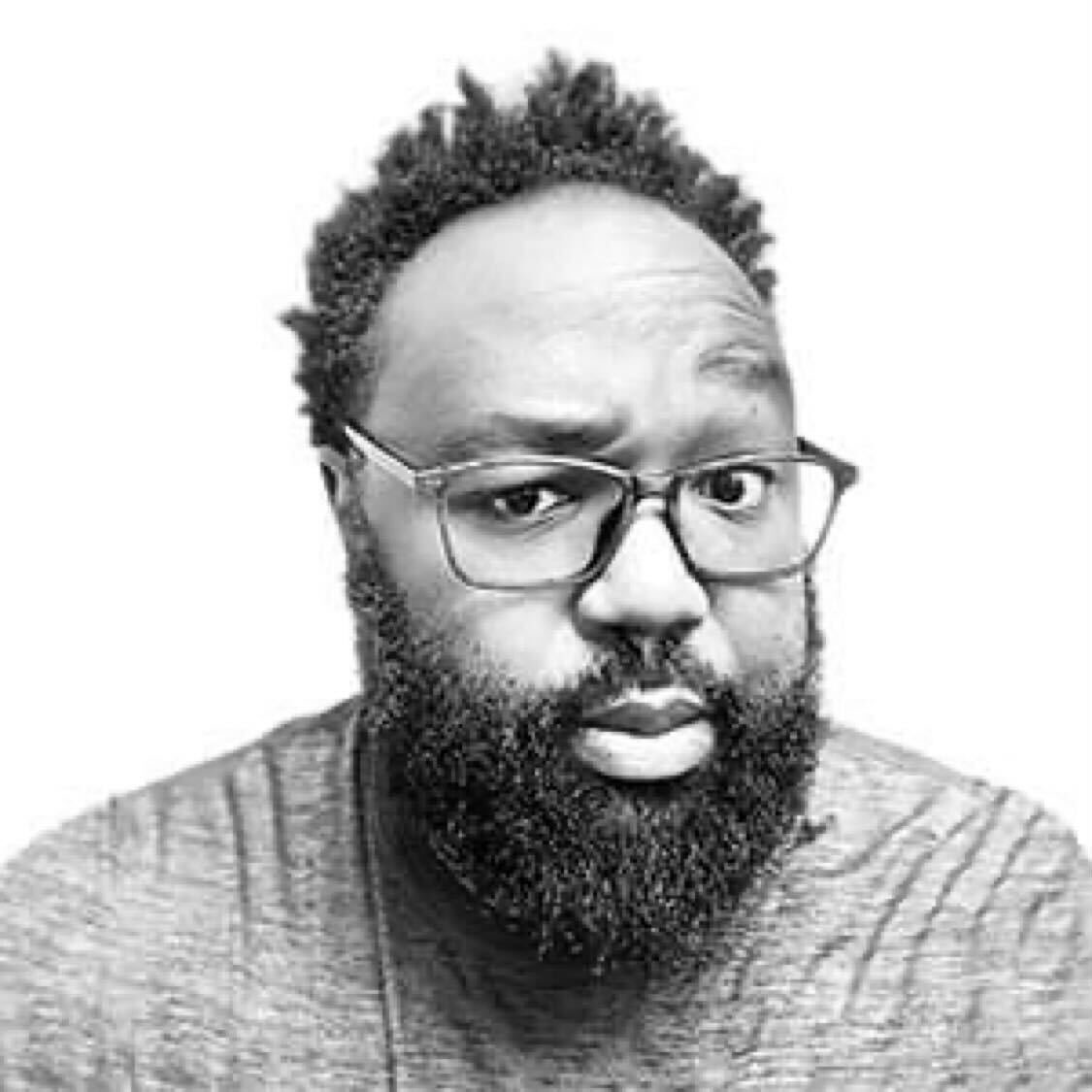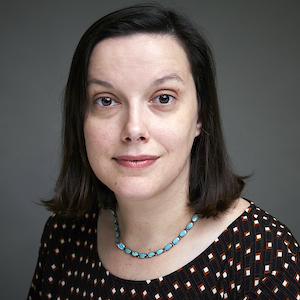Double Agent Profile: Glenn Harmon
- Publish Date
- Authors
- Glenn Harmon
- Authors
- Cathy Colliver
Name: Glenn Harmon
Designation: Agent 00108
Double Agent Role: Senior Software Consultant
Special Skills: Champion of Tough Conversations
Aliases: glennharmonjr
Location: Columbus, OH
Favorite Emoji:

What are you proudest of doing in the past year at work?
I did some moonlighting for a client who reported results for the 2020 election. I took a system that was in PHP and put it in Rails. It was able to keep up with close to a billion requests per day for those five days between the election and when we had a result. Especially the first night it was chaotic—I think people were just constantly refreshing. The system has an API set up which news sites started to use. It was definitely fast and furious for about five days. So I feel pretty good about that. I still don’t know if I would show anybody the code from it, because people get self-conscious about those things I guess. It’s still really cool though. There’s a system out there I helped put together that is still being used for election results, and it can withstand some serious pressure.
Looking ahead, what has you most excited for the next year at work?
Getting to explore different ways people work and seeing new things. This is how I learn best. I am constantly doing something new to really get the best from my abilities. I don’t do very well with repeatable, monotonous tasks. I’m super excited to see how other people do things and how clients are set up. I’m eager to gain perspective on things I’ve never personally witnessed, but may have read about conceptually.
What is your favorite thing about being a Double Agent at Test Double?
There are two. I like the autonomy. I’ve worked for a consultancy before, and it was anything but autonomous. They very much watched every single hour and actually wanted to have you work extra time whenever possible. If they could have somehow figured out a way to squeeze 80 hours out of you in the week they would’ve. I also am seeking better work life balance. It’s been said repeatedly that we really don’t want anyone to go over 40 hours for the week. We really want you to take four hours of growth time and continuously work on something that’s important to you and your growth. Those two things are super important to me.
What do you think makes Test Double unique?
We are willing to put our money where our mouth is. There are a lot of things that companies say they will do, almost like a mantra people will recite but don’t necessarily live out. At Test Double, all the actions align with all the things that have been said. Looking at pay bands as an example and making sure that we stay competitive: I don’t think it would be uncommon for a company to say that, but then take the process behind doors and then say nothing’s happening. There’s a lot of transparency here. We actually feel like we’re owners—because we are—but we also get all transparency that goes with that. There are no real surprises in terms of what’s going on with the company, the financials, the whole thing. And it’s really enlightening—refreshing even.
What have you been thinking about a lot lately in software development, and why?
This comes on the heels of Justin’s talk about how to trust again, but I’ve been giving this some thought anyway. The idea of being able to trust your processes, so that you can free up your mental resources to do something else. A lot of my experience with some of these overly complex setups people have is they don’t trust the process. So they have a lot of checks and balances along the way that are manual or need somebody to step in. I’ve been trying to figure out how to make it more approachable. I think the phrase may be better risk management: understanding where we can mitigate the risk automatically and being able to build the trust in our system that way. If something goes wrong, we know how to fallback, fail fast, and also get people in their best state. If you can have an idea and get it out into the world quicker, it allows you to start finding out what that value of that idea is. But if you get stuck and bogged down in process and the things of the sort in between, the idea may get killed before it ever gets off the ground. How do we trust our processes so that these ideas don’t get lost?
Tell me about something memorable that happened to you last year.
Because of the pandemic I spent even more time with my kids, and that was a huge positive. They’re in high school. The clock’s ticking down until they’re independent people out doing their own thing in the world. We spent a lot of extra time together. The pandemic was awful for a lot of people, but one of the small shining lights and good things to come out of that was the ability to spend more time with my kids.
What has you most excited this year outside of work?
One of the pandemic hobbies I picked up was photography. My dad got into it a little bit, and I have a couple friends who really like to take pictures, edit photos, and things of that sort. I thought this would be cool if I could do this with my kids. Two years ago I took a bunch of homecoming pictures that turned out really well. They’re all from my phone and I thought, I can take this a step further. So I got a camera and started taking pictures of marching band and cheerleading. Now I’m looking forward to doing their homecoming pics. I’m going to take the senior pictures for one of my daughter’s friends. So, photography is the big hobby outside of work that I’m looking forward to.
What book/podcast/movie/TV show have you been thinking about a lot lately, and why?
We get really into thrillers and murder mysteries, and we really get into a a lot of those that premiered on the BBC network first. Not that there isn’t great American television—there is—but there’s something very succinct about the way that BBC shows handle their seasons (often called series). They get in, they tell the story, and that’s it. They have to find new ways to justify being around or the series won’t get renewed. So they will tell the story and get out. On American TV, once it starts generating money, it’s like, “We need you to stay around.” A story that could’ve ended in two seasons goes on for 10. On BBC a show that could have ended in two seasons stays on for two seasons and that’s it. Line of Duty is the show that my wife and I watched first. Then we went back to watch it with our daughters. And it is really good if you like a good thriller or a good whodunit. If you enjoy figuring out what’s going on or a story that ties together over multiple seasons or call backs, I very much recommend it.
What are you looking forward to most post-pandemic?
One day we can say we’re past it. It does not seem to be ending quick enough, so I’m not sure. Maybe having new debates about different things.
What’s something interesting about you that’s not on your resume or LinkedIn?
Oftentimes when I give a talk at a conference I will say that I am a champion of tough conversations. When something needs to be said in a retro—something may be causing some pain or frustration, or things that we’re not sure how to take on—I look forward to those conversations. I like spitballing ideas and getting people’s thoughts. And sometimes I think, somebody really needs to just start talking. These are not “Let’s be blunt” moments, but let’s just get the conversation going. I think that’s why I would brand myself as a champion of tough conversations: We all noticed something uncomfortable here, so let’s just start talking about it and see where it goes.
This interview is based on a recorded conversation with Glenn Harmon and Cathy Colliver. It may or may not self-destruct.
Glenn Harmon
- Status
- Sleeper Agent
- Code Name
- Agent 00108
- Location
- Columbus, OH
Cathy Colliver
- Status
- Double Agent
- Code Name
- Agent 0080
- Location
- Louisville, KY

